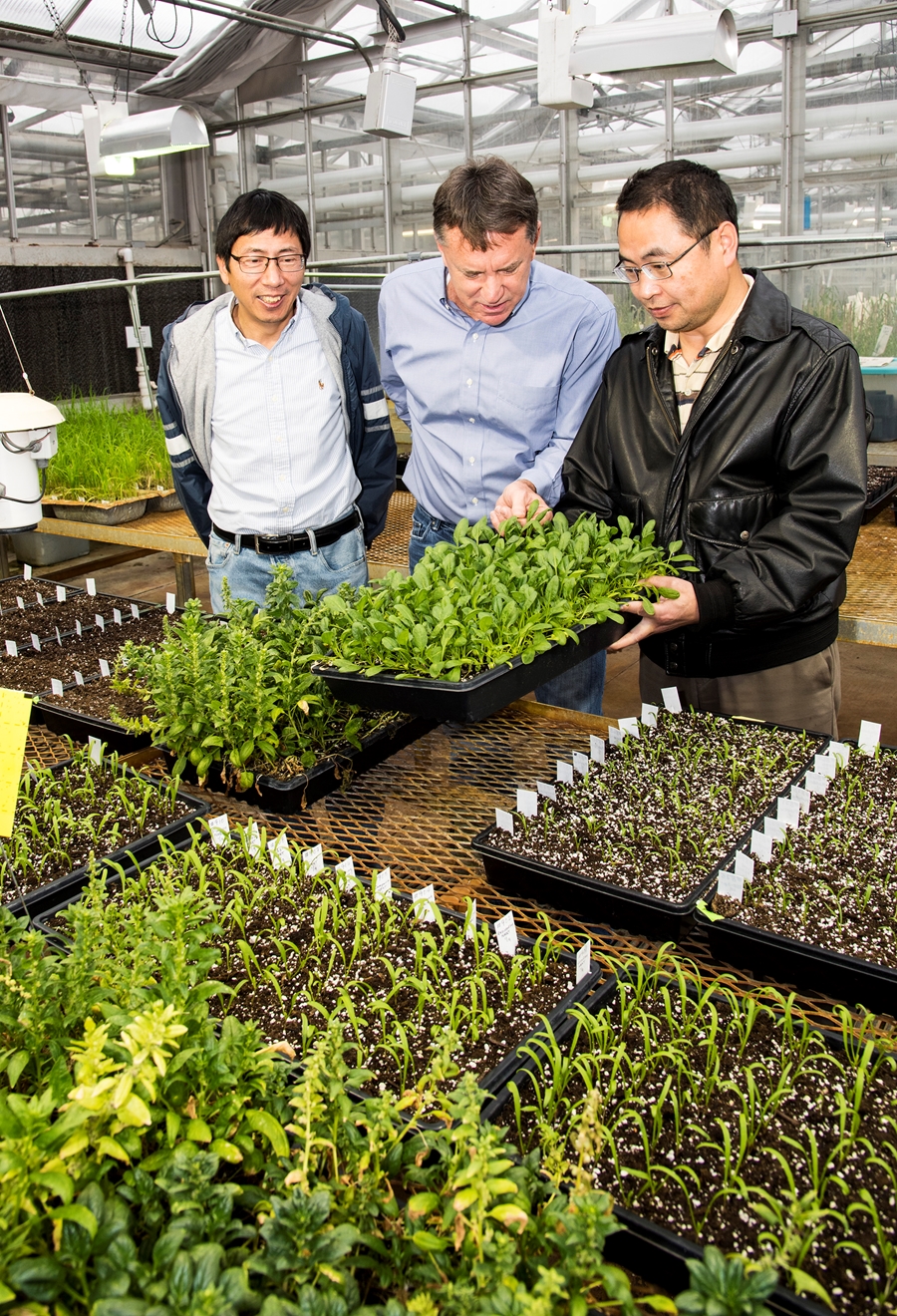
FAYETTEVILLE, Ark. — The USDA's National Institute of Food and Agriculture awarded a $2.45 million research grant to University of Arkansas System Division of Agriculture scientists working to develop disease resistance in spinach.
The grant, totaling $2,447,432, was awarded through the USDA's Specialty Crop Research Initiative, authorized by the 2014 Farm Bill.
It funds an ongoing project by Division of Agriculture researchers Ainong Shi and James Correll, who are leading a multi-state and multi-agency collaboration to meet growing consumer demand for spinach by developing new, disease-resistant varieties.
Shi, vegetable breeder and assistant professor of horticulture, and Correll, professor of plant pathology, are focusing their work on three important diseases that affect U.S. spinach production — downy mildew, white rust and Fusarium wilt.
"The U.S. is the second largest producer of spinach and there has been a dramatic increase in spinach production as a result of higher consumption," Shi said. "In order to keep up with demand, growers require continuous development of improved and adapted spinach varieties to overcome diseases and insect pests."
Correll describes agricultural plant breeding as a biological arms race. "The first, best line of defense against plant diseases is resistance," he said.
Plant breeders continually develop crop varieties that have improved disease resistance, Correll said. But new races of the pathogens emerge and eventually find ways to overcome the resistance. So, plant breeders develop a new crop variety with improved resistance, and the arms race continues.
Shi and Correll have teamed up to bring new tools to the spinach breeding arena. They began with a three-year research program to identify resistance to downy mildew, the most yield-limiting disease in spinach in the U.S. That project was funded by a $725,552 USDA Specialty Crop Multistate Program grant administered through the Arkansas Agriculture Department.
The new grant allows them to broaden their investigation to include resistance to white rust and Fusarium wilt and to apply molecular breeding tools to develop improved varieties.
Correll's team brings decades of research on downy mildew to the partnership. They have had numerous USDA grants to examine how these pathogens attacks spinach throughout the world.
Shi brings a host of genetic tools and knowledge to the table.
"We are developing new strategies for breeding spinach varieties with durable resistance to ensure long-term disease control," Shi said.
Shi's strategy is three-pronged. First, he is identifying quantitative gene loci — the locations of particular genes in DNA — that control disease resistance.
Marker-Assisted Selection uses genetic markers to identify disease resistant breeding lines, Shi said, and to determine if resistance has been transferred by conventional crossbreeding.
Breeding efforts will focus on gene pyramiding, or gene stacking, Shi said. By this strategy, multiple genes for disease resistance will be bred into improved spinach varieties. The result would be plants with multiple means of defense against disease-causing pathogens.
Shi said the goal of the collaborative research is to use these advanced genetic tools to more efficiently develop improved spinach varieties through conventional breeding methods.
The NIFA grant is one of 12 awarded nationwide for science-based solutions and new technology for the specialty crop industry.
"Specialty crops generally fetch high value for the farmers, but require more intensive farming than conventional crops, such as wheat or corn," NIFA director Sonny Ramaswamy said in a USDA announcement. "NIFA investments in specialty crop research provide high-tech solutions to the needs of farmers and processors. They foster a competitive U.S. industry that offers abundant, nutritious, safe, and affordable food sources."
About the Division of Agriculture: The University of Arkansas System Division of Agriculture's mission is to strengthen agriculture, communities, and families by connecting trusted research to the adoption of best practices. Through the Agricultural Experiment Station and the Cooperative Extension Service, the Division of Agriculture conducts research and extension work within the nation's historic land grant education system.
The University of Arkansas System Division of Agriculture offers all its Extension and Research programs to all eligible persons without regard to race, color, sex, gender identity, sexual orientation, national origin, religion, age, disability, marital or veteran status, genetic information, or any other legally protected status, and is an Affirmative Action/Equal Opportunity Employer.
Topics
Contacts
Fred L. Miller, science editor
Agricultural Communication Services
479-575-4732,